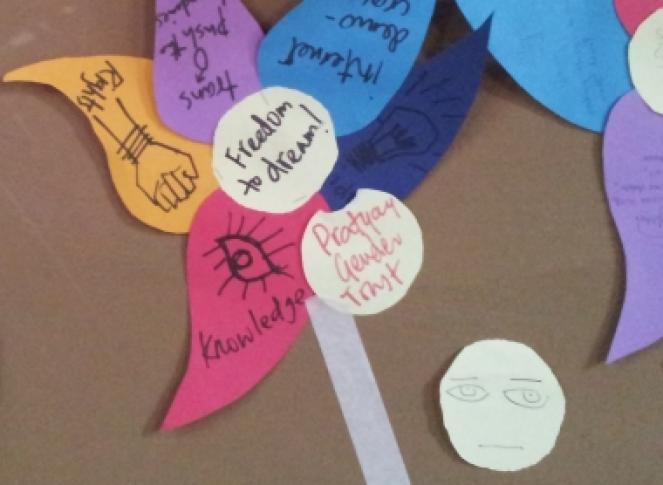
Nearly all, or 98%, of activists see the internet as an important public sphere for advancing sexual rights. However 51% of sexual rights activists have suffered hate speech, censorship or privacy violations when using the internet as a medium to express sexuality. Sexual rights activists from Africa and the Middle East face double risk compared to colleagues from elsewhere of being attacked by their governments because of their online activities.
These are some of the findings of the recent survey carried out by APC’s EROTICS project. This edition draws on this groundbreaking survey and probes the specific realities in different countries, including the value of the internet in sexual rights advocacy, online challenges and their negotiation by sexual rights activists, and the role of network building in resisting online threats and content regulation.
THOUGHTS AROUND… A is for Agency by Nadine Moawad, EROTICS project coordinator
Read the full editorial at http://www.genderit.org/node/3836/
NEW ARTICLES
Survey on sexual activism, morality, and the internet
Has the internet become an indispensable tool for feminist and LGBTQI advocacy? How savvy are sexual rights activists to handle the legal and technical issues that come along when they use the internet? How do they negotiate online threats and restrictions? Activists from around the world addressed these and other questions through a global online survey on sexual rights work and the internet. This article prepared by Horacio Sívori and Bruno Zilli, researchers at the Latin American Center on Sexuality and Human Rights, State University of Rio de Janeiro, highlights the main findings of the survey. More >
Tangled, like wool – Sex, sexuality and the internet in India
A recent survey of sexual rights activists in India shows that most consider the internet an integral part of their activism. “Tangled, Like Wool” explores several intertwined questions arising from this: What does the internet bring to sexual rights activism? Do the online and the offline complement each other in this kind of activism? How does keeping the internet free and open strengthen sexuality rights? And why do these seemingly disparate domains – ‘sexual rights’ and ‘internet rights’ – need to come closer together? More >
Indonesia: Put sex on the internet!
This article by Kamilia Manaf and Ni Loh Gusti Madewanti describes how the discourse on sexuality in Indonesia is becoming more political and part of the public sphere due to the impact of the reformations begun in 1998. However, while the internet has provided a space for the advancement of sexual rights in Indonesia, discrimination and violence against LGBT groups and women in Indonesia that has happened in physical spaces has penetrated into spaces online. Online harassment, cyber bullying and hate speech violate one’s sense of security, and homophobic behaviour on the internet (cyber-homophobia) is now more common and continues to increase. More >
How activism shapes your experience of being a citizen on the internet
What does it mean to use the internet freely and fully? What freedom do you have to express who you are, how you live your life, what you desire, dream and believe in on the internet? And how safely can you communicate, contribute, exist, navigate and be in the spaces online that can so powerfully connect you to communities and knowledges that build our sense of self? This article, written by Jennifer Radloff, explores the ways in which activism shapes the experience of being a citizen on the internet, focusing mainly on safety issues experienced by sexual rights activists. More >
Of Porn, Morality and Censorship: A Perspective from India
Filed in April 2013, a legal petition that calls for a ban on pornography on account of its linkage to sexual violence in India has raised several eyebrows and debates within the country. This piece written by Richa Kaul Padte explores the context for this proposed legislation, the social and legal cultures in which it sits, and its implications for internet censorship within India. More >
Read the full edition here .